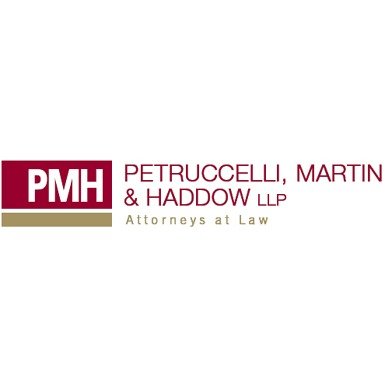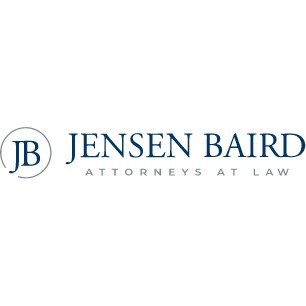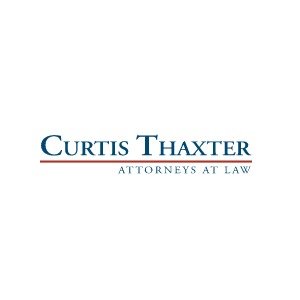Best FDA Law Lawyers in Maine
Share your needs with us, get contacted by law firms.
Free. Takes 2 min.
Or refine your search by selecting a city:
List of the best lawyers in Maine, United States
About FDA Law in Maine, United States
FDA Law refers to the body of federal and state regulations that govern the safety, efficacy, labeling, marketing, and distribution of food, drugs, medical devices, cosmetics, and other substances regulated by the Food and Drug Administration. In Maine, FDA Law applies to individuals and businesses involved in manufacturing, packaging, distributing, or selling products regulated by the FDA. Compliance with these laws ensures that products on the market are safe for consumers and adhere to federal and state requirements.
Why You May Need a Lawyer
There are many situations in which legal assistance may be necessary concerning FDA Law in Maine. Some common scenarios include:
- Starting a business that manufactures or sells FDA-regulated products such as food, dietary supplements, or medical devices
- Responding to FDA inspections, warning letters, or enforcement actions
- Ensuring proper product labeling and marketing according to federal and state regulations
- Recalling products deemed unsafe or non-compliant
- Seeking approval for new medical devices, drugs, or food additives
- Defending against civil or criminal penalties related to alleged FDA violations
- Navigating state-specific rules for cannabis, seafood, dairy, or local specialty food products
- Managing import or export of FDA-regulated products
- Understanding recent changes or updates in FDA regulations impacting Maine businesses
- Dealing with disputes over intellectual property related to FDA compliance
Hiring a lawyer who is versed in FDA Law and familiar with Maine’s regulatory environment can help protect your business and prevent costly compliance issues.
Local Laws Overview
In Maine, FDA Law is largely governed by federal statutes like the Food, Drug, and Cosmetic Act, but state regulations also play a significant role. The Maine Department of Agriculture, Conservation and Forestry oversees local food regulations and coordinates with the Maine Department of Health and Human Services for enforcement. Some local considerations in Maine include:
- Seafood and aquaculture are major industries, requiring compliance with both FDA and state health codes
- Maine has specific labeling requirements for products like maple syrup, dairy, and blueberries
- Medical cannabis and hemp-derived products are legal under certain conditions, but are subject to both state licensing and FDA oversight
- State-level rules may impose additional permits or inspections for food establishments beyond federal rules
- Home-based and small farm food businesses, known as cottage foods, have their own set of Maine-specific regulations
Understanding the overlap between federal FDA standards and Maine’s unique agricultural and seafood regulations is essential for operating legally and safely within the state.
Frequently Asked Questions
What is the FDA’s role in regulating businesses in Maine?
The FDA oversees the safety and labeling of food, drugs, cosmetics, and medical devices. Maine businesses that manufacture, process, pack, or sell these regulated products must comply with FDA rules and may also be subject to state inspections and regulations.
Do I need FDA approval to sell food products in Maine?
Most conventional food products do not require pre-approval from the FDA, but certain processed foods, dietary supplements, and imported foods may have special requirements. All food businesses must comply with both federal and Maine state food safety laws.
How does Maine regulate medical marijuana and CBD products?
Medical marijuana is legal in Maine and regulated by state authorities, but the FDA still controls how these products are advertised, labeled, and sold, especially if they cross state lines or make health claims. CBD derived from hemp is legal but must meet both state and federal standards.
What should I do if I receive a warning letter from the FDA?
A warning letter is a notice of alleged regulatory violations. You should consult a lawyer experienced in FDA Law as soon as possible to help you respond appropriately and resolve any issues to avoid further enforcement actions.
Are dietary supplements regulated differently in Maine?
Dietary supplements are regulated by the FDA under the Dietary Supplement Health and Education Act, but Maine may have additional registration and labeling laws. Be sure your products meet both sets of requirements.
What permits are required for seafood businesses in Maine?
Seafood businesses in Maine must comply with FDA seafood HACCP regulations and secure permits from the Maine Department of Marine Resources. Additional state or local health inspections may also be required.
How do FDA recalls work in Maine?
If a product is found unsafe or mislabeled, the FDA may require a recall. Businesses must quickly notify the public, remove the product from the market, and follow both federal and state recall procedures. Legal guidance is important to minimize liability.
Can I make health claims on my product label?
Health claims are strictly regulated by the FDA. Any claim must be supported by scientific evidence and comply with FDA guidelines. In Maine, additional state rules may apply, especially for specialty foods and supplements.
What about small or home-based food businesses?
Maine has specific cottage food laws that allow the sale of certain homemade foods with fewer regulatory hurdles. However, businesses must still meet basic food safety standards and local licensing requirements.
Who oversees food safety at the state level in Maine?
The Maine Department of Agriculture, Conservation and Forestry and the Maine Department of Health and Human Services are the main state bodies responsible for food safety and regulation, working in conjunction with the FDA.
Additional Resources
Here are some helpful organizations and governmental bodies for those seeking advice on FDA Law in Maine:
- U.S. Food and Drug Administration (FDA)
- Maine Department of Agriculture, Conservation and Forestry
- Maine Department of Health and Human Services - Division of Environmental and Community Health
- Maine Department of Marine Resources (for seafood and aquaculture regulations)
- Maine Office of Cannabis Policy
- Maine State Bar Association - for locating qualified legal counsel
- Small Business Administration (SBA) Maine District Office
- University of Maine Cooperative Extension (for food safety training and resources)
Next Steps
If you believe you need legal assistance with an FDA-related issue in Maine, consider taking the following steps:
- Determine the nature of your legal question and gather any relevant documents or correspondence, such as inspection reports or warning letters
- Consult the appropriate state agency or FDA office to clarify any regulatory requirements
- Contact a lawyer with experience in FDA Law and knowledge of Maine’s specific regulations
- Prepare a list of your questions and objectives for your legal consultation
- Follow your attorney’s guidance to ensure compliance, respond to enforcement actions, or resolve disputes
- Stay informed about changes in FDA regulations and Maine law that could affect your business
Navigating FDA Law in Maine can be complex, but knowledgeable legal counsel can help you understand your rights and obligations, avoid costly mistakes, and protect your business or interests.
Lawzana helps you find the best lawyers and law firms in Maine through a curated and pre-screened list of qualified legal professionals. Our platform offers rankings and detailed profiles of attorneys and law firms, allowing you to compare based on practice areas, including FDA Law, experience, and client feedback.
Each profile includes a description of the firm's areas of practice, client reviews, team members and partners, year of establishment, spoken languages, office locations, contact information, social media presence, and any published articles or resources. Most firms on our platform speak English and are experienced in both local and international legal matters.
Get a quote from top-rated law firms in Maine, United States — quickly, securely, and without unnecessary hassle.
Disclaimer:
The information provided on this page is for general informational purposes only and does not constitute legal advice. While we strive to ensure the accuracy and relevance of the content, legal information may change over time, and interpretations of the law can vary. You should always consult with a qualified legal professional for advice specific to your situation.
We disclaim all liability for actions taken or not taken based on the content of this page. If you believe any information is incorrect or outdated, please contact us, and we will review and update it where appropriate.
Browse fda law law firms by city in Maine
Refine your search by selecting a city.














